When 17-year-old Tess first came to the Hospice, her mum, Sue, was in its Inpatient Unit with terminal cancer and Tess was in what felt like a permanent state of chaos and anxiety. She didn’t understand what was happening to her mum - or what was happening to her.
Thanks to support from the Hospice’s Children’s team, 18 months on, Tess is in a much better place and her hope is that other people her age who have a parent with a serious illness know that places like the Hospice exist and can help them…
When I first came to The Hospice of St Francis in March 2016, I was 17, my mum was in the Hospice’s Inpatient Unit with terminal cancer, and I was in what felt like a permanent state of chaos and anxiety. I didn’t understand what was happening to Mum - or what was happening to me.
Mum was first diagnosed with breast cancer in 1999 when I was just a few months old. She’d had treatment and lived with its slow progression as I grew up but she was always so positive - the most loving, nurturing, kindest mum anyone could wish for, who always put others before herself. She was my best friend as well as my mum and ours wasn’t an unhappy, worried household so when she became seriously ill, I didn’t know how to deal with it.
I was suffering with such bad panic attacks that I couldn’t go to school and my anxiety was so bad that at times I could hardly sit down, but I never made the connection that they were linked to my mum’s illness.
She’d been going to the Hospice for support at its Spring Centre for a while and she suggested I give them a call to see if they could help me. I was immediately offered regular one-on-one sessions with Jo, one of the Hospice’s Children’s Support Workers.
I started seeing Jo in March 2016 after Mum was admitted to the Hospice in the February and through Jo’s support, I started to understand that a big part of the anxiety I’d experienced growing up was my reluctance to express my feelings and my inability to understand that my mum was seriously ill.
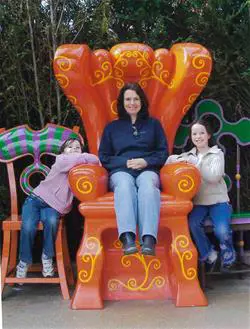
A really important thing I learned was that you can’t get rid of strong emotions by ignoring them and as I’m quite a creative person who’s really into acting and music, she suggested a good way to express myself might be through talking and writing. While Mum was seriously ill, I would use a character or a song to deal with overwhelming emotions from what felt like a safe distance.
Together we worked out great coping methods that worked for me on how to deal with my anxiety – things I could do regularly to make me feel calmer generally, like talking about my worries for the future associated with the death of my mum as well as things I could use in the moment if I was experiencing a panic attack, such as positive visualisation techniques or breathing exercises. I also started a journal, which really helped me to express and work through difficult emotions.
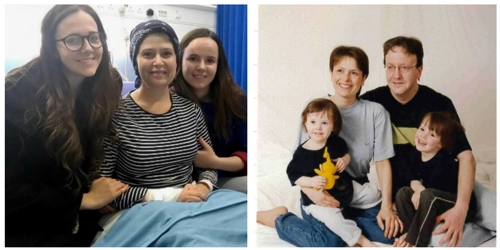
A few weeks before Mum died, I understood that time was really limited and that I should talk to her and tell her some important things before she passed away, but I just couldn’t think of what to say - it was like writer’s block.
It was Jo who gave me a small purple box containing pieces of paper to take home and read, each with different sentence starters to use as prompts - “I love you because…” and “Thank you for…” and suddenly the words came to me.
The next time I saw Mum, everything I wanted to say became blindingly obvious to me. I told her I loved her, thanked her for everything she’d done for me and thanked her for believing in me.
I talked about some of my favourite memories with her – of her playing tunes on the piano like Ol’ Man River and Can’t Help Lovin’ Dat Man from Showboat, the musical, and me singing along, and I told her what I intended to do in the future. ‘I want to be like you, Mum, a good, kind person who helps others,’ I said. I also promised her I’d make her very proud. The sentence starters had prompted everything I wanted to say and made the conversation with Mum happy and hopeful for the future, rather than gloomy.
Soon after I started seeing Jo, she invited me to try Teen Drop In, a fortnightly group session with other teenagers who have a parent with a serious illness or who’ve experienced a parent’s death.
It really helped. It gave me the chance to meet people my age who’d had similar experiences to my own and got through it, which made my situation feel less scary and gave me hope. Grief was unfamiliar territory to me but knowing other people my age who’d got through it was really reassuring. When I saw other people opening up about their experiences, it encouraged me to open up as well.
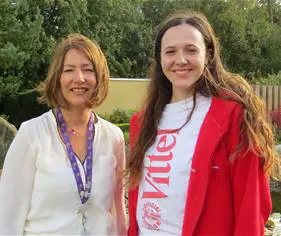
It also helped me to understand the finality of Mum’s diagnosis - something I hadn’t really been able to come to terms with before. Being around people my age who’d lost their parents through terminal illness helped me to come to terms with the fact that I had limited time with Mum, but also that I would be able to cope with her death because other people my age had coped with losing their parent.
Mum’s funeral was my first ever funeral and I hadn’t been sure what to expect, but it had felt like a celebration and I’d actually laughed with family and friends and ended up having a good time.
I remember going to Teen Drop In a week later and when everyone asked me how it was, I found myself explaining that I wasn’t sure, because I knew it was supposed to have been a very sad day - and it was – but afterwards I wasn’t sure whether to feel guilty, happy or sad.
But another person at Teen Drop In said that a few years ago at their own mum’s funeral they had felt the same - that the day was a celebration and they’d had a good time. Other people began to share similar stories and it made me realise that I shouldn’t feel guilty about it and that my mum would have been happy to see me celebrating her life.
Back home, I shared these reassurances with my dad and my sister and my sister said that it hadn’t felt like a funeral for the most part. I said that celebrating Mum’s life had been a good thing and we shouldn’t worry about grieving in the way some people at the funeral maybe expected us to - something else that somebody at Teen Drop In had said to me.
Such a big part of my experience of losing Mum was my fear of the unknown - not knowing how I would cope with this unimaginable experience or the overwhelming emotions which accompany it.
By far the most important things I got from the Hospice are the valuable lessons I learnt about grief - lessons I’ll be able to use when I have similar experiences in future and know that I’ll be able to cope. The things I’ve learned seem obvious to me now but they weren’t at the time!
Eighteen months on, I’ve got my A Levels and my place at Warwick University to study English and I’m in a much better place. Without the Hospice though, I honestly don’t know how I would have got through it all.
I really hope other people my age who have a parent with a serious illness know that places like the Hospice exist which can help you to come to terms with what’s happening. It’s just a shame that I only discovered it in the last few months of Mum’s life - my only regret is that I didn’t know about the Hospice and the help I could get there sooner.
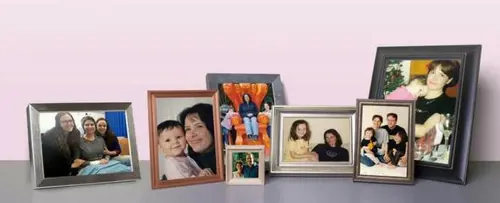
Thank you for reading Tess's story. It is because of the generosity of supporters like you that we were able to give her, and her mum, Sue, the care and support they needed. Every penny donated makes a real difference to the lives of those who need our care right now, and those who will need it in the future.





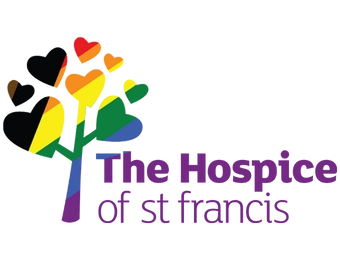
Share Article